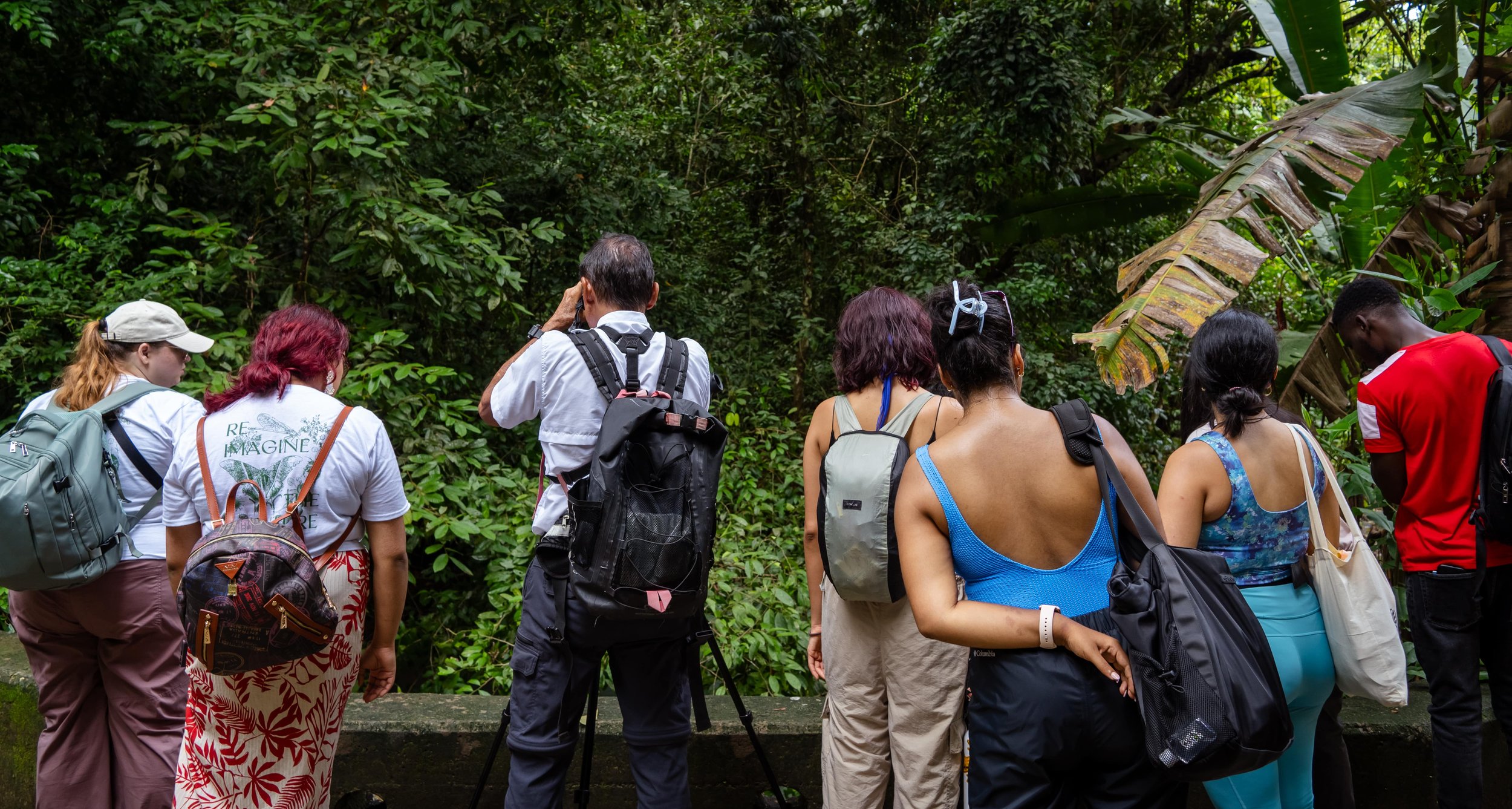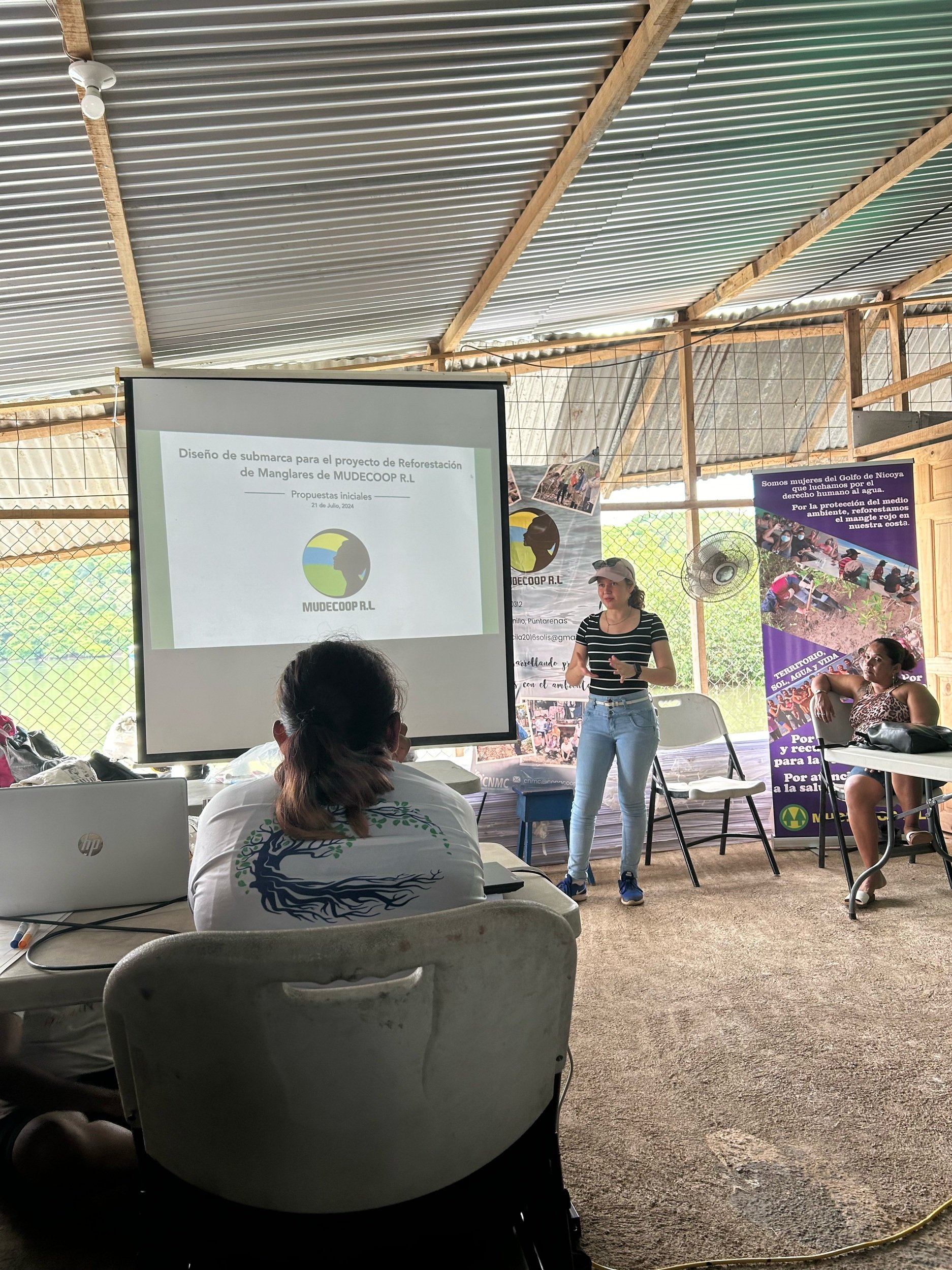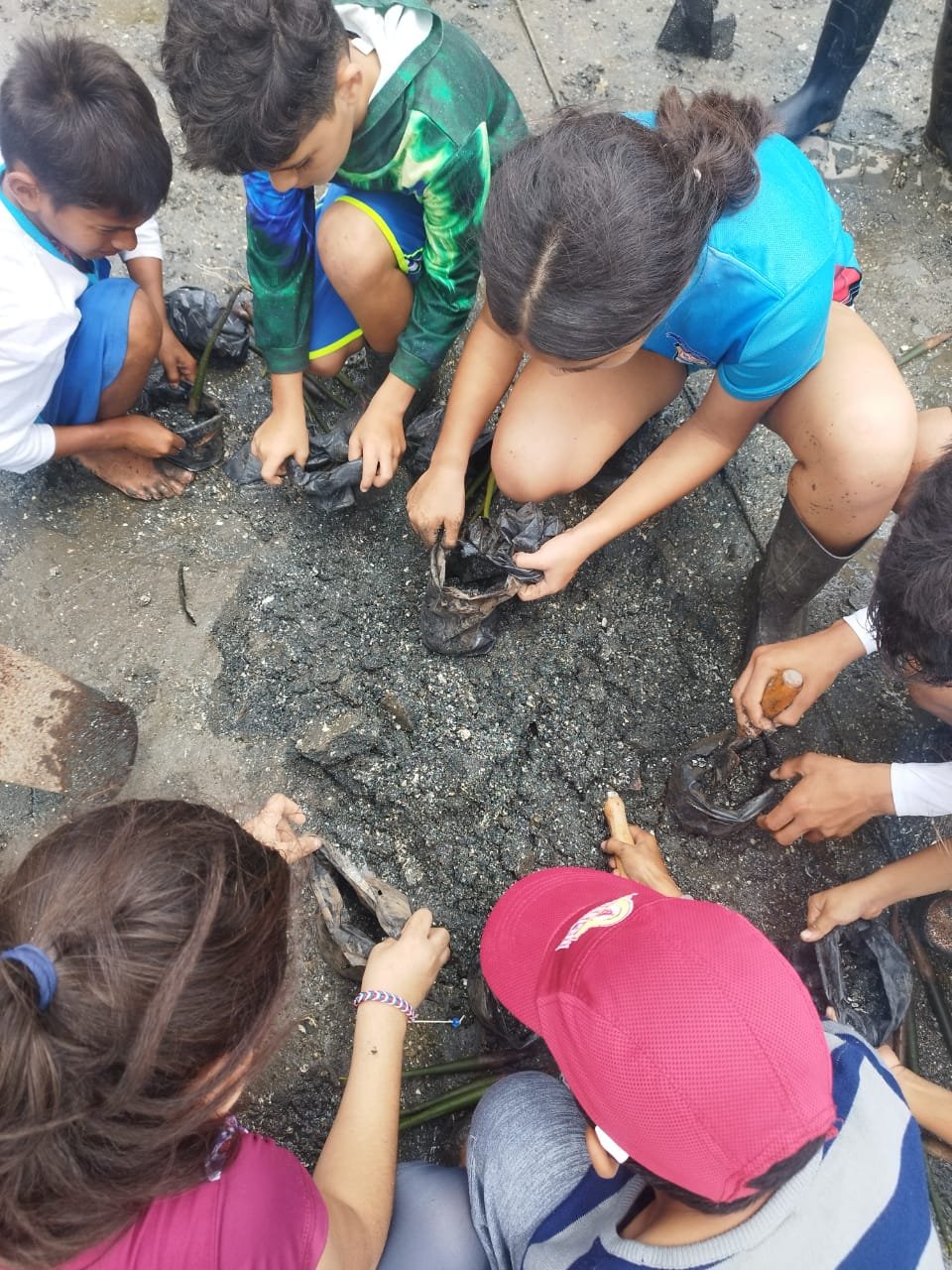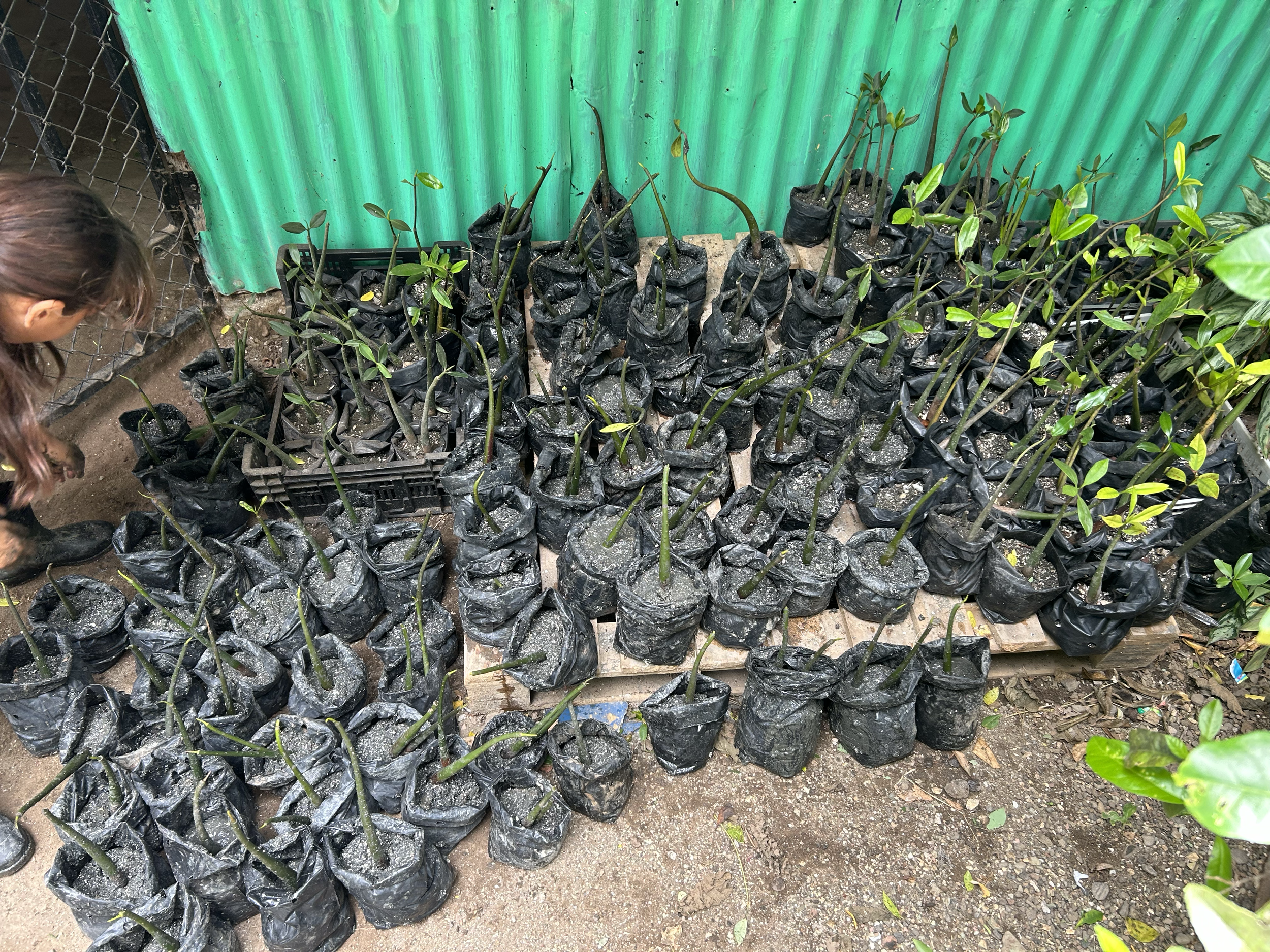
Empower. Preserve. Restore.
RE!Granting
Empowering Change
RE!Granting supports community-driven projects tackling some of today’s biggest climate challenges: restoring ecosystems, addressing climate injustices, and empowering youth to lead change.
This grant program focuses on restoration, preservation and empowering young people and frontline communities to be the change our world desperately needs.
By backing efforts to rebuild natural ecosystems and promote social equity, we’re building momentum towards a more sustainable, fair world.
We empower.
Helping you to lead positive change and tackle the urgent environmental and social challenges your community is facing.
We preserve.
Backing your efforts to protect fragile ecosystems, helping ensure natural beauty and diversity thrive.
We restore.
Supporting you to breathe new life into degraded ecosystems, building resilience for nature and your community.
Discover the Global Impact of RE!Granting
In 2023, we awarded $250,000 in grants to 45 projects in 26 countries, helping to restore oceans, forests, mangroves and small-scale regenerative agriculture to a third of the world!
See how these projects are making an impact and dive into their stories.




![[RG019] Vivero Verde Mar.png](https://images.squarespace-cdn.com/content/v1/5e9fa081c620dd181454bce3/5e53d887-e337-4135-9ee3-f976250c2ffa/%5BRG019%5D+Vivero+Verde+Mar.png)

RESTORE GRANTEE
Vivero Verde Mar
Astrid Peraza
-
I'm a materials engineer, climate, and gender equality activist from Costa Rica. I'm a Future Rising Fellow. A year ago, I went to film a documentary focused on the women's cooperative of the rural village of Manzanillo, Puntarenas.
Manzanillo is a small fishing village on the Pacific coast of Costa Rica. Our province is characterized by poverty and abandonment by the government. In this area the only means of livelihood is artisanal fishing, an activity that has been strongly affected by climate change and industrial fishing, so there is not enough work for men and women.
This is why the women of the village decided to unite and create the Mudecop cooperative. They identified the need to activate sustainable rural tourism in the area, as well as to protect natural resources, such as mangroves, as they are the main source of sustain for the community.
The project “Vivero verde mar” main goal is the reforestation of around 500 m^2 of land in the mangrove ecosystem located in the village of Manzanillo, Puntarenas, Costa Rica. Vivero verde mar aims to restore the natural mangrove barrier to what it used to be before degradation by human force.





PRESERVE GRANTEE
Agri Learn and Talks
Elizabeth Juma Ochieng
-
Elizabeth Juma Ochieng is a 24 year old professional journalist from Kisumu, Kenya. I grew up in a household where my father was a farmer and that's what we relied on as a source of income until there came a time when he couldn't farm anymore because of flooding. Flooding has never occured in the region, this very one was the first, destroying people homes, farms and rendering us homeless.
Growing up I wished there was more information or rather people knowledgeable in the area of sustainable farming would come to my area to train us. I wished the government offered more support to the small scale farmers who could not afford the pricey seedlings and fertilizers. This was my dream all along… to train, empower and create awareness on sustainable farming and climate change.
With my professional background in reporting on issues affecting the community via radio show in Western Kenya, Kisumu County, I developed an interest in supporting the communities via sustainable projects such as agriculture and education on climate justice. My project focuses on funding suitable crop seedlings for agricultural purposes to farmers, offer agricultural education and training programs in rural areas and empower various communities (youths, women and farmers) in planting not only trees but edible fruits to increase tree cover mitigating climate change effects. I additionally intend to purchase appropriate fertilizers and pesticides for the crops. This is to increase yields and protect crops for consumption and economic purposes empowering farmers. In Kenya, small scale farmers from underserved communities lose their farm produce from pest infestation that has continued to affect thousands not only from the country but the neighboring nations as well.
GreenCheck Solidarity Academy
EMPOWER GRANTEE
-
GreenCheck is a youth-led youth-led nonprofit that advances global climate justice by serving as a grassroots-centric intermediary. We redistribute resources to community-led climate initiatives from Most Affected Peoples and Areas (our “Partners”) and build international communities of solidarity, ultimately empowering local communities to reach their goals. We support our Partners with fundraising efforts, community building, and capacity enhancement. Currently, we have six Partners from Colombia, Guatemala, Haiti, Malaysia, Singapore, and the Philippines.
The GreenCheck Solidarity Academy is a paid training and internship pilot programme for youth aged 18-24 years old from Most Affected Peoples and Areas (MAPA). The GreenCheck Solidarity Academy comprises a 1-month training and upskilling component, followed by a 3-month internship with one of the 6 GreenCheck Partners. The Academy aims to: 1. Train the next generation of climate leaders from MAPA 2. Scale existing high-impact and MAPA-led frontline climate justice actions 3. Increase transnational, inter-MAPA solidarity.
RE!Granting: Cycle 2
This year we are awarding grants from $5,000 to $15,000 to drive meaningful, community-led impact across the world. Apply in one of three categories:
Empower
$5,000
Lead change by driving environmental, social, or economic initiatives that build resilience and equity in your community. Focusing on skill-building, training, education, etc.
Preserve
$10,000
Protect and conserve existing natural spaces, ensuring their lasting health and biodiversity.
Efforts to preserve natural or cultural resources around the world.
Restore
$15,000
Revitalize ecosystems damaged by human activity or natural disasters, from reforestation to habitat restoration.
Ready to Apply?
We’re excited to support the next wave of change makers. If your project fits one of these categories, RE!Granting could be your next step.
Applications are now open until February 7th.
FAQs
-
Who is eligible to apply for the RE!Granting Program?
Eligible applicants include individuals, nonprofit organizations, community-based organizations, and grassroots initiatives focusing on one or more areas: climate action, environmental conservation, sustainability, or social equity. Applicants need not address all areas but must demonstrate a clear and impactful focus on at least one. Priority is given to first-time applicants, underrepresented groups, and those benefiting marginalized communities.Can individuals apply for the grant, or is it only open to organizations?
Yes, individuals can apply if they have strong ties to their community initiatives. Nonprofit and community-based organizations are also eligible.What types of projects are prioritized for funding?
Priority is given to projects addressing:Climate change mitigation or adaptation
Biodiversity conservation, ecosystem restoration, or sustainable agriculture
Empowerment of youth, women, and marginalized communities
Social justice linked to environmental issues
Innovative, scalable, or replicable solutions
Can I apply if my organization has received a grant from the Re-Earth Initiative in the past?
Yes returning applicants can apply to a maximum grant worth $6000 only -
What is the maximum grant amount I can apply for?
Grants range from $5,000 to $15,000, depending on the project scope.New Individuals: Up to $5,000
New Nonprofit/Community-Based Organizations: $10,000 to $15,000
What is the application deadline?
The application deadline for Cycle 2 is February 7th, 2025 at 23:59 GMT. Late applications will not be considered.What documents are required for the application?
Applicants must provide:A project proposal with objectives, timeline, and budget (via Submittable)
Organizational background or CV (if applicable)
Previous impact reports (if applicable)
Letters of support or partnership agreements (optional but encouraged)
How are applications reviewed and selected?
Applications are reviewed based on:Relevance to program priorities
Innovation of the approach
Impact potential for measurable, long-term change
Feasibility of the project plan
Budget transparency and justification
Diversity and Inclusion, prioritizing marginalized communities
What should I do if I have questions during the application process?
You can contact the grant team via the Submittable platform, email at grants@reearthin.org -
When and how will the grant funds be disbursed?
Funds are disbursed via bank transfers only (PayPal is not accepted).100% disbursement upon signing the agreement or in installment as stated by the Finance strand and the successful grantee.
Note: Re-Earth Initiative will not cover bank or conversion fees; these will be deducted from the grant amount.
Can grantees request changes to their project after funding is awarded?
Yes, modifications can be requested if circumstances change. Changes must be approved in writing by both the grantee and the Re-Earth Initiative Grant Lead.Can my organization apply for funding for multiple projects in the same year?
No, each organization is allowed only one application per cycle to ensure fairness. -
What are the reporting requirements?
Grantees must submit:Quarterly Reports: Progress updates every three months
Monthly Reports: For projects needing frequent tracking
Progressive Reports: At key milestones
Impact Reports: Final outcomes and lessons learned, including visuals (photos, videos)
What happens if my project encounters delays?
Notify Re-Earth Initiative immediately. A revised timeline will be discussed to address delays and ensure project success.What support is available for grantees during the project implementation?
Grantees will receive:Ongoing communication with project officers
Capacity-building opportunities, especially for first-time grantees
Networking with other grantees for collaboration and knowledge-sharing
Site visits or virtual check-ins (where applicable)
-
How does the Re-Earth Initiative ensure fairness and transparency in the grantmaking process?
Re-Earth follows a rigorous, multi-step review process with internal and external evaluators. Open communication, clear criteria, and a diverse review panel ensure objective and fair assessments.What if I’m not selected for funding?
Unsuccessful applicants are encouraged to reapply in future cycles. Feedback may be provided to strengthen future applications. -
Are there any post-grant opportunities?
Yes, grantees can:Apply for additional funding to scale successful projects
Join capacity-building programs or mentorship opportunities
Access the Re-Earth Initiative alumni network for resources and collaboration
Can grantees continue to receive support after the project ends?
Yes, Re-Earth Initiative may offer ongoing support through networking, capacity building, and highlighting successful projects in its publications and reports.Didn’t find your answer?
Please email your question to grants@reearthin.org for quick communication.






